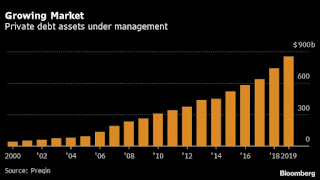Big Tech Crushes It. Now What?

Yun Li and Fred Imbert of CNBC report the Dow closes 110 points higher amid Big Tech rally, Apple soars 10% to a record: Stocks wiped out earlier losses and closed higher on Friday as the biggest tech companies and market leaders — Amazon, Apple and Facebook — soared after posting stellar quarterly results. The Dow Jones Industrial Average rose 114.67 points, or 0.4%, to 26,428.32 after dropping about 300 points at its low of the day. The S&P 500 climbed 0.7%, or 24.90 points, to 3,271.12, while the Nasdaq Composite gained 1.4%, or 157.46 points, to 10,745.27, led by a 10% jump in Apple shares. The major equity averages also wrapped up the month of July with solid gains and posted their fourth straight positive month. The S&P 500 gained 5.5% in July, while the Dow and the Nasdaq Composite rose 2.3% and 6.8%, respectively. Still, a few negative headlines capped the gains in the broader market Friday: Emergency unemployment benefits are set to expire Friday and Co...


